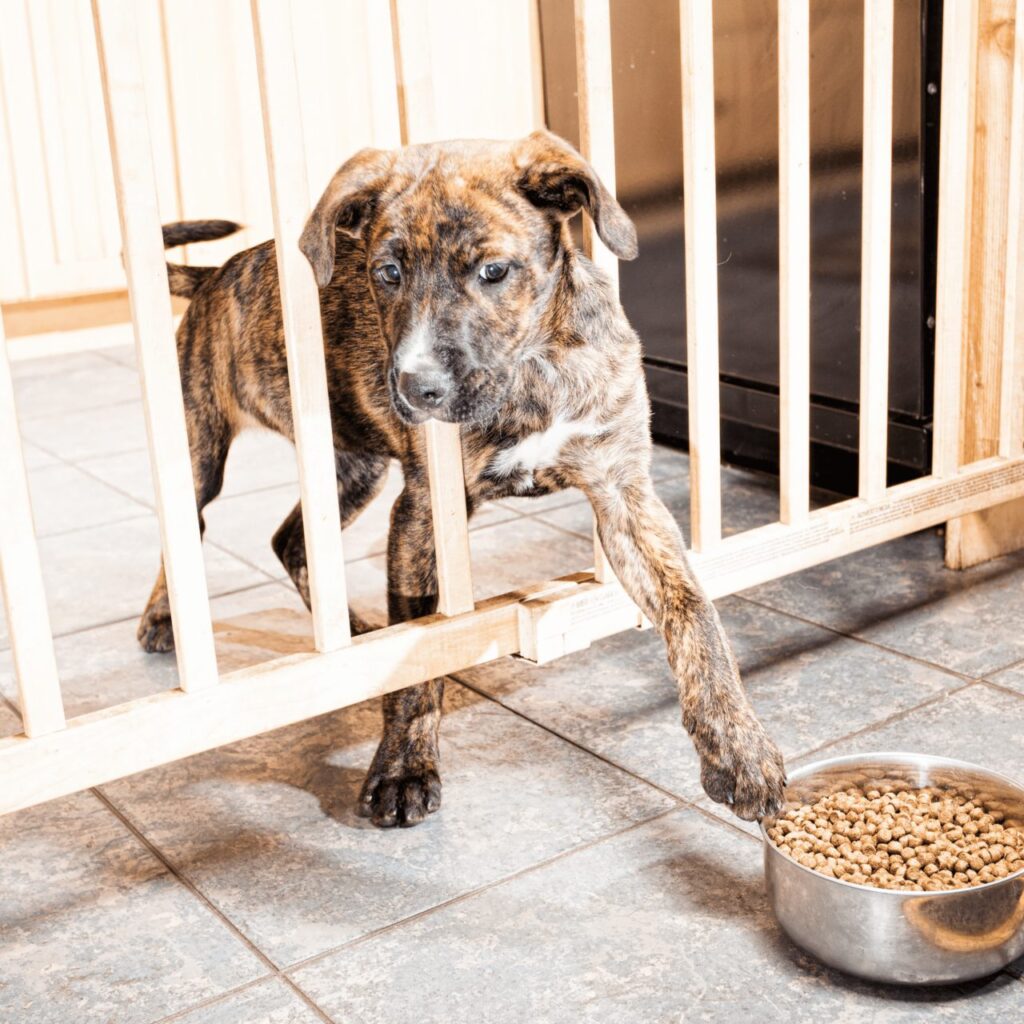
FREE Help I've Got A New Puppy Survival Guide
Sign up to our mailing list and we will give you all you need to know on making your first 7 days count. Includes sleep, feeding, toilet training, chewing and much more!
Recent posts
Blog categories
Search the blog
What about punishment in dog training?
Posted on 28th September 2023

I'm going to admit it... there are times in my life when I get stressed and frustrated. Sometimes, these feelings make me withdraw and need time on my own and other times, you may find me a little snappy and sharp.
This can come out in the way I speak to people close to me and even with my dogs, especially when training is not going to plan.
Recent media sensations show how using hard punishment can make a dog behave and get you the quick fix that so many people seek and feel they need.
The reason why these people gain so much popularity is because punishment works. We can't deny that. If you got an electric shock every time you went over the speed limit, you would stop doing it pretty quickly. No question.
However, I believe that there is no place for punishment in dog training.
I need to define punishment at this stage as being a deliberate act of a person to inflict pain, discomfort, physical restraint or intimidation on a dog.
Why do I believe this? Well, because punishment has consequences. Here is what I see:-
Punishment does not change how your dog is feeling about the trigger
Your dog is communicating a feeling or emotional response if: they are scared of something, nervous, frustrated, they growl, move away or snap,
Adding punishment to a dog who is scared will only increase the fear. They may behave well if they are more scared of the punishment or punisher then they are of the trigger. Please know, they still feel the same way about the trigger then they did before. You just stopped them from communicating that.
If we want our dogs to improve, we need to change emotional responses, not just suppress them.
And taking the batteries out of the smoke alarm (think of it like taking the dogs communication signals away) is never sensible.
Punishment isn't helping your dog to think or act differently
In her book "Don't shoot the dog", Karen Pryor talks about the ways we can change behaviour without actually shooting the dog (our last resort).
One of the ways is to train our dogs to do something which is incompatible with the behaviour we are trying to get rid of.
So, for example, rather than shouting at the dog or kneeing them in the chest when they jump, asking for a sit or paws off teaches them a clear behaviour they can do instead.
Your dog may lunge and bark at dogs when on the lead. How about teaching them to watch you as you walk past instead. Granted, this will take longer to train but will give you a behaviour which sticks for longer and you will probably even notice you don't need to ask for it after a while.
But those lead jerks.... they'll just get harder and harder and your dog will pull more.
Punishment is confusing
Have you ever met people who change their mood frequently? Perhaps you need to work out what mood they are in before you speak to them. Imagine having a boss who was so inconsistent, you dreaded being spoken to by them.
Punishment confuses our dogs because we humans are so flipping inconsistent.
I'm allowed to jump up, I'm not allowed to jump up. I'm allowed to pull on lead. I'm not allowed to pull on lead. You get the picture.
Now, add some physical discomfort or intimidation in there and you can see why your dog looks guilty when you approach them.
Punishment makes humans unpredictable and erodes trust which, in turn, makes dogs unpredictable.
Punishment impacts relationships
Just as already mentioned, being punished by an individual can impact the relationship with that person. Did you have a teacher you didn't like? Did they use punishment? I certainly behaved in maths class but not because I liked the teacher. In fact, I disliked him very much and still hate maths to this day. He was intimidating and would often have a go at me for no apparent reason. And I certainly didn't respect him.
Our dogs depend on us for everything they need in life. It doesn't mean we don't create boundaries and expectations for behaviour. It doesn't mean we don't train them for what we want.
But we want our hands to be safe. We want our dogs to know that when a human hand reaches towards you, it's to bring reward or affection, never to deliberately harm you.
Punishment has physical fallouts which makes behaviour worse
Punishment often involves physical pain. We used to smack and cane children. We don't do that anymore.
If your dog gets a lead jerk to their neck several times a day, this is going to create pain and physical changes to the neck area.
Pain and discomfort changes behaviour. It effects the quality of sleep and ability to rest. It increases stress responses and this leads to memory formation which impacts behaviour later on.
It effects the brains' ability to learn.
Pain makes reactions to triggers worse. Because now it;s not just the scary thing, but also the associated pain that comes with it.
Punishment leads to avoidance
Would you want to go home if you thought you were going to be punished when you did? Perhaps you have even tried hiding as a kid.
How about those people who speed up when they see blue flashing lights behind them.
The threat of punishment leads to avoidance behaviours.
You will see this in a dog who runs away when you try and put them back on the lead, who run off with the stolen item or who hide when they hear you raise your voice.
Us humans are also rubbish at timing. When we punish our dogs for ripping up a cushion when we come home, the dog thinks that you coming home is bad because they actually ripped the cushion up 4 hours ago. That's why speeding tickets don't stop us speeding.
Wondering why your dog isn't coming back when you call them? Think about what you did last time you managed to get them back on the lead.
Punishment does not make you feel good
None of us feel good when we lose our temper or make someone else feel bad. Unless we are some kind of psychopath, anyway.
When we lose it with our dogs, or get increasingly frustrated, we will most probably feel bad afterwards. We get worried and start to search for quick fixes.
You may also find that you have to escalate in your behaviour to get your dog to stop and this leads to you doing more to your dog than you would ever think you were capable of. You become harsher and you get feedback from the relief you feel when your dogs stops.
It ends up as a negative spiral and so far away from the relationship you dreamt of when you first got your dog.
If you are finding you are losing your patience with your dog, I'm here to tell you that it's ok. You are allowed to feel annoyed or frustrated. Sometimes, our dogs can be downright scary. But punishment is usually about us and not our dogs.
Please seek help. Things can change. And if the help you find suggests punishing your dog by using force, intimidation, fear or physical pain, walk away and look for a positive reinforcement trainer instead.
Email: clair@talktothepaw.io | Mobile: 07969 036789 | Privacy Policy



